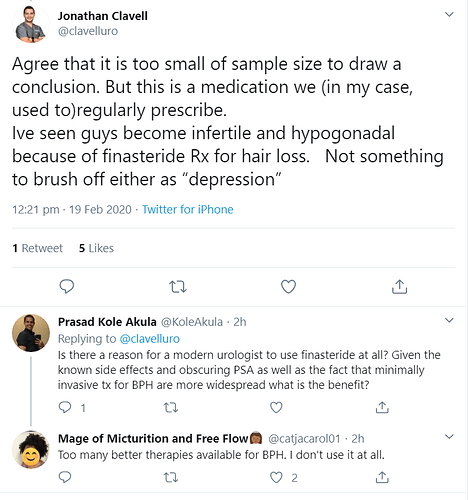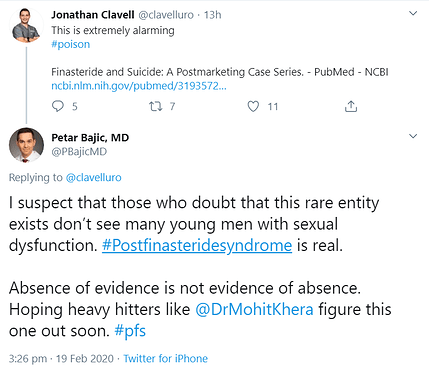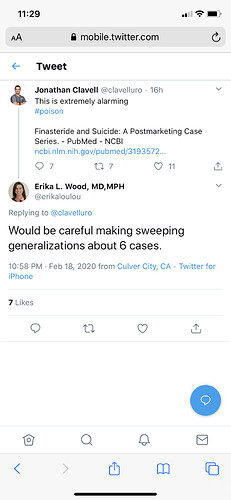Abstract
BACKGROUND:
In 2011, depression was added to the product labeling of finasteride in the USA. The US Food and Drug Administration’s Adverse Event Reporting System database contains at least 36 death cases for finasteride. The aim of this study is to characterize the clinical histories and symptoms reported by a series of 6 suicide victims who took finasteride for treatment of androgenic alopecia.
METHODS:
Medical records and autopsy reports were provided by family members of the cases. Relevant information was extracted according to guidelines for submitting adverse event reports.
RESULTS:
An important pattern of symptoms was common among all cases who committed suicide in the setting of finasteride use - insomnia and persistent sexual dysfunction after medication discontinuation. Insomnia and fatigue/tiredness were some of the most debilitating symptoms. Apart from 1 case who had hyperlipidemia, there was no documentation of concomitant medication use with finasteride or any baseline medical or psychiatric diagnoses prior to starting finasteride. The findings of this postmarketing series may not be generalizable to the population of men who committed suicide in the setting of finasteride use due to small sample size and bias. Associations between medication use and symptoms cannot prove causality.
CONCLUSION:
Men under the age of 40 who use finasteride for alopecia are at risk for suicide if they develop persistent sexual adverse effects and insomnia. Further research is needed to establish whether finasteride has a causal relationship to suicide.




 safe to say we’re in good hands
safe to say we’re in good hands